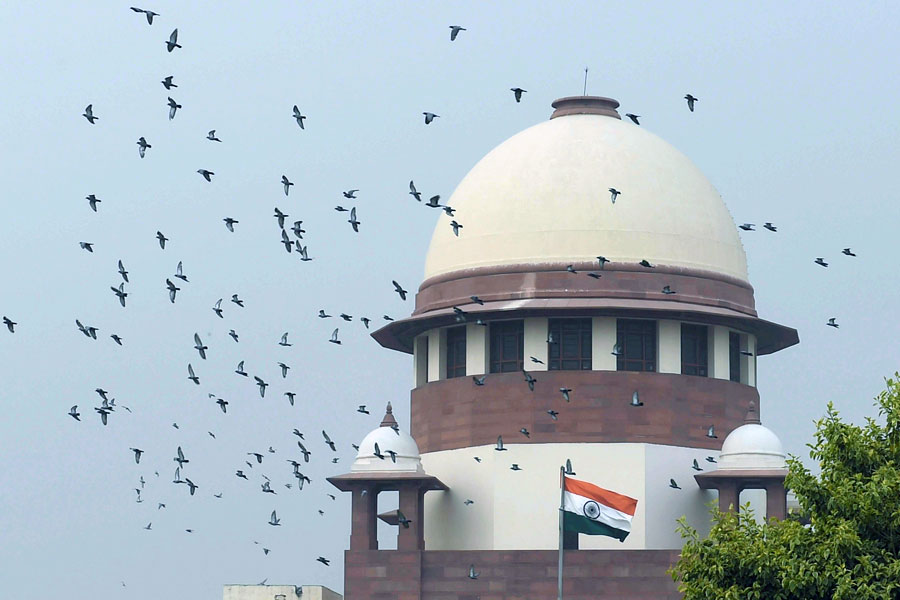The Supreme Court ruling on September 17 to close criminal proceedings against 30 army personnel involved in the 2021 botched counter-insurgency operation at Oting in Nagaland has drawn the ire of Naga organisations which viewed the verdict “as an outrage to their pursuit of justice and accountability”.
In a statement issued on Thursday, the Naga Hoho, the apex body of Naga tribes, said the Oting massacre was a “clear violation of human rights and the repudiation of the case undermines both the credibility of the judicial process and the public trust in the rule of law”.
Condemning the ruling, the Naga Hoho then urged the Nagaland coalition government, headed by the NDPP, an ally of the BJP, “to not give up in its efforts to seek justice for the victims’ families in particular and the Naga people in general but to continue explore and avail all avenues so that justice is meted out to all the stakeholders”.
It also called upon Naga civil society organisations, tribal bodies, human rights defenders, Naga political groups and “every Naga citizens to stand united in our condemnation of this gross injustice”.
The ruling of the division bench of Justices Vikram Nath and P.B. Varale, which provided relief to the 30 Army personnel, was passed on pleas by wives of three army officers seeking closure of criminal proceedings because it violated Section 6 of the Armed Forces (Special Powers) Act, 1958.
The Nagaland police had filed the case against the army personnel belonging to the 21 Para (Special Forces). The Centre had, however, denied prosecution sanction to the state government under Section 6 of the AFSPA which is mandatory to proceed. The state government has challenged the denial of permission to proceed against the
armymen in the Supreme Court.
The Supreme Court bench, has, however, said that if the Centre accords prosecution sanction, the case may be taken to its logical end.
The AFSPA gives unbridled power to armymen to search, arrest and shoot any suspect in areas declared as disturbed under the Act.
There is a demand to scrap the contentious Act from the Northeast and it gathered fresh momentum after the botched Oting operation on December 4-5, 2021. The AFSPA has been in force in Nagaland since 1958, Manipur since 1980 and Assam since 1990.
Besides the Naga Hoho, the Naga Students’ Federation (NSF), the Oting Students’ Union and NSCN (IM), which is engaged in peace talks with the Centre, have also expressed their displeasure over the SC ruling on Thursday.
In a representation to the Union home minister Amit Shah on Thursday, the NSF brass said: “The Supreme Court’s interim stay of the proceedings in 2022 and the eventual closure of the case despite the SIT’s findings erodes the trust that the Naga people place in the law of the land and democratic institutions.”
“The Oting incident is not merely an isolated act of violence but a reflection of systemic injustice that has persisted under the draconian Armed Forces Special Powers Act (AFSPA), 1958” which provides blanket immunity to the armed forces personnel, “effectively sanctioning extra-judicial killings and grave violations of human rights”.
The NSF then placed three demands before Shah, including prosecution sanction against the accused personnel from the 21 Para (SF) involved in the massacre; full accountability and transparency from the Union government regarding the botched operation and immediate revocation of the AFSPA from the Naga homeland and the Northeast.
If these demands are not addressed, the NSF said, it will be left with no option but to “launch democratic agitations to fight for justice that has been denied to the victims and their families”. It also said the Naga people will “not remain silent in the face of such gross injustices” while urging the Centre “to stand on the side of justice and accountability”.
The NSCN (IM) said the SC ruling has come as a “rude shock to the Nagas”. Expressing its “strong objection against denial of justice to the victims”, the insurgent group said the “Oting massacre was a clear violation of human rights” and that it “stands with the victims and ensure that justice is done”. “No justice loving people who value human rights can forget the behaviour of the Indian Army that was reckless in the extreme, till justice is delivered,” the NSCN IM said.










